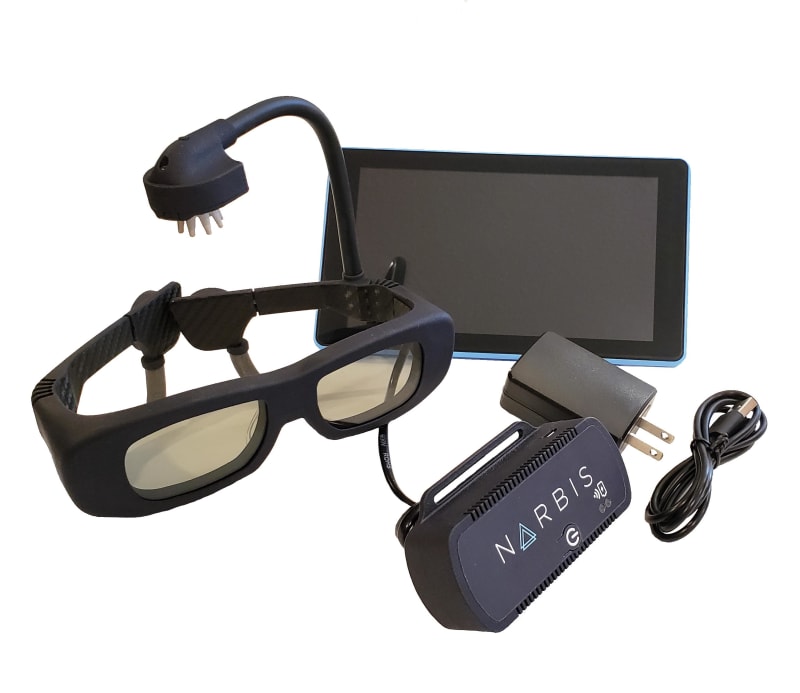Introduction:
Narbis smart glasses use neurofeedback at home to train your brain to focus, and eventually learn to concentrate on demand. Sensors in the Narbis glasses and a NASA-patented algorithm track how relaxed, distracted, and focused you are to help the brain practice focus and attention.
How it works: With Narbis, worn 2-3 times a week for 30 minutes while working on a computer or reading, the lenses darken when the sensor detects the wearer is getting distracted. When the wearer focuses back on the task at hand, the lenses return to their normal tint.
Innovation:
Why it’s a breakthrough: Novel Feedback Mechanism for Neurofeedback: One of the biggest shortcomings of previous neurofeedback technologies has been their inability to be used in real-life situations since many of them require the user to stop what they’re doing and stare at a screen.
In other words, you could either use a neurofeedback tool or work at a computer — but not both at the same time.
Narbis, on the other hand, brings neurofeedback into real-life activities, allowing you to practice attention within the context of your daily life — like reading the latest headlines or Slacking with a colleague
This is important because it allows practicing attention during the activities that are most relevant.
Eventually, after neurofeedback training with Narbis, your brain will learn to focus at will.
Feasibility:
Narbis smart glassses are available for $690
The plastic parts that comprise the frame are manufactured using HP Multi Jet Fusion 3D printing technology in Nylon PA-12, a bio-compatible material. Custom electornic boards that contain Analog to Digital converter, processor, and bluetooth radio have been designed are manufactured by a 3rd part assembling house.
Custom EEG sensors have been designed and are being manufactured by a neuroscience company based in France. All of the components are assembled in-house at our headquarters in Ambler, Pennsylvania.
Narbis Smart Glasses may be worn over your existing prescription or reading eyeglasses if needed.
Marketability:
For kids with ADHD, or those kids who simply have trouble focusing, spending time away from the structure of a classroom environment can exacerbate attention issues. How can teachers and parents help?
Video games claiming to treat ADHD are hitting the market, but are coming under fire for making misleading claims. Medication comes with its own concerns over side effects.
Narbis presents a novel, non-drug option. Its at-home smart glasses use neurofeedback to measure brain activity and help kids with attention disorders.
Video
Like this entry?
-
About the Entrant
- Name:Devon Greco
- Type of entry:teamTeam members:Devon Greco
- Patent status:patented

